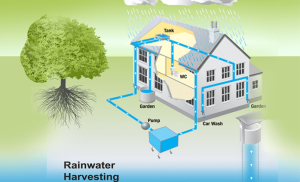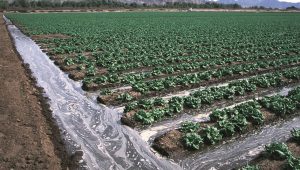8 Advantages of Rainwater Harvesting
There are many advantages of rainwater harvesting and rainwater harvesting is the collection and storage of rainwater. From a roof-like surface, rainwater is collected and redirected to a tank.

There are the following advantages of the rainwater harvesting as given below;
- Reduces Flooding and Erosion
- Reduces Water Bills
- Suitable for Irrigation
- Reduces Demand on Ground Water
- Used for Non-Drinking Purposes
- Improves Plant Growth
- Minimal Maintenance Cost
- Easy to Maintain
Reduces Flooding and Erosion:
One of the advantages of rainwater harvesting is that it reduces flooding and erosion. In a number of ways harvesting rainwater can help the environment and it can reduce erosion in gardens and around downspouts. As hard water, rainwater doesn’t produce scale and corrosion and in certain areas, the collection of rainwater may reduce flooding.

Reduces Water Bills:
Rainwater harvesting can cut costs for entire communities and also help individuals save on their water bills. When many people in one community use rainwater the cost to supply mains and overall water services can be substantially reduced and in case the water becomes contaminated, having a source of water can also decrease dependence on municipal sources.

As the primary source of water or as a backup source when needed, rainwater can be used and this is one of the advantages of rainwater harvesting.
Suitable for Irrigation:
For collecting water most rooftops provide the necessary platform and a large amount of water is collected by harvesting.

It is ideal for irrigation purposes because rainwater is usually free from harmful chemicals.
Reduces Demand on Ground Water:
In many areas throughout the world, the sources of groundwater are increasingly being strained. Digging deeper wells can cause environmental damage such as collapsing the soil where the water used to be and it is also expensive.
So, one of the advantages of rainwater harvesting is that during times of drought and when the groundwater supplies have been depleted, harvested rainwater can be stored and then used.
Used for Non-Drinking Purposes:
For non-drinking, the majority of the water we need is used and many works require large amounts of water such as washing clothes, washing dishes, bathing and flushing toilets, etc.
So, for all of these things, rainwater can be used, and when washing clothes and dishes rainwater is soft and can lessen the need for detergents. For washing vehicles, bathing pets, and nearly all cleaning that uses water, rainwater can also be used.
Improves Plant Growth:
One of the advantages of rainwater harvesting is to improve plants and gardens and from plants and soil using harvested water can flush the salt buildup. Harvested rainwater is generally free from chlorination, man-made contaminants, and from several types of pollutants.
On overall property maintenance and landscaping, using water that is clean and healthy for plants and trees can save money.
Minimal Maintenance Cost:
The costs of maintaining a rainwater catchment assembly involve little more than a bit of time and energy after the initial setup and to be sure there are no leaks or crack regular cleaning and periodic inspections are required.
It is not necessary to install any kind of purification process unless you plan to use the water for drinking.
Easy to Maintain:
To any community, there are many advantages of rainwater harvesting. The system is based on simple techniques that are very easy to maintain for water collection and as compared to other purifying or pumping means, the overall expenses used in setting up harvesting methods are much cheaper.
As it does not require deep pockets so its maintenance is feasible on the economic front.
There are other advantages of rainwater harvesting such as;
- In emergencies, rainwater harvesting can be an excellent back-up source of water.
- Reducing the demand on local wells and municipal supplies, water is conserved.
- By your town or city, your use of stored water cannot be restricted.
- In urban, suburban, or rural areas, rainwater collection systems can be set up.
- It reduces stormwater runoff that can cause water pollution and erosion.
- On your property, rainwater collection may solve drainage problems.
We Love Cricket
